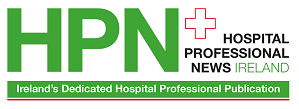Get Your Rhythm Back! Beacon Heart Rhythm Centre Delivers Ireland’s First Pioneering Convergent Atrial Fibrillation Programme
A groundbreaking new procedure has been launched at the Beacon Hospital to treat Ireland’s most common cardiac rhythm disorder atrial fibrillation, a serious cardiac condition that affects 3% of Irish adults by the time they are 60 increasing to over 10% at the age of 75.
With atrial fibrillation, the filling and contracting mechanism of the heart is affected so that patients may develop heart failure with symptoms including shortness of breath, palpitation, dizziness, chest pain and tiredness. In some cases, a clot may develop inside the heart chambers, usually in the left atrial appendage, that may dislodge to cause serious complications, most notably stroke.
Patients with this condition may be prescribed medications to help with the heart rate and rhythm, whilst blood thinners may be administered to reduce the risk of stroke. In some cases, a specialist cardiologist called an Electrophysiologist may perform a procedure through the groin referred to as an ablation. This aims to eliminate the abnormal electrical activity inside the heart that cause atrial fibrillation with a success rate of 60% in challenging cases.
And now, Beacon Hospital’s Heart Rhythm Centre has become the first in Ireland to exclusively offer a hybrid staged procedure involving both an Electrophysiologist and a Thoracic Surgeon. This specialist team lead by Dr Jonathan Lyne and Professor Karen Redmond offers a minimally invasive surgical ablation called a Convergent procedure to return up to 90% of patients to normal sinus rhythm. Simultaneously a clip is applied to occlude the left atrial appendage, the area where a clot may form, to reduce the risk of stroke.
Dr Jonathan Lyne, Consultant Cardiologist and Electrophysiologist leading the Beacon Heart Rhythm Centre said:
“As people get older, their heart may go into an irregular rhythm called atrial fibrillation. Traditional ablation techniques may not be enough to return the patient to normal sinus rhythm. Atrial fibrillation can increase the risk of stroke, particularity as patients age and need to be managed.
Professor Karen Redmond further comments: “We are delighted to be able to provide this pioneering Convergent procedure at the Beacon Hospital. This involves an ablation through a small skin incision treating the back wall of the heart. A clip is also applied to occlude the left atrial appendage at the same time, so that a blood clot cannot form. This helps reduce the need for blood thinners or anticoagulants that can be harmful in the long term due to bleeding episodes.”
Michael Cullen, CEO of the Beacon Hospital said:
“We’re delighted to be the first hospital in Ireland to offer this surgical procedure for patients with atrial fibrillation. This marks another expansion of our world-class cardiology department, which offers a full range of care for heart-related diseases and conditions, with some of Ireland’s leading experts in this area.”
Mabel Hill, a patient who had the procedure said: “My procedure was very successful and I have made a quick and full recovery. My quality of life has improved immensely.”

